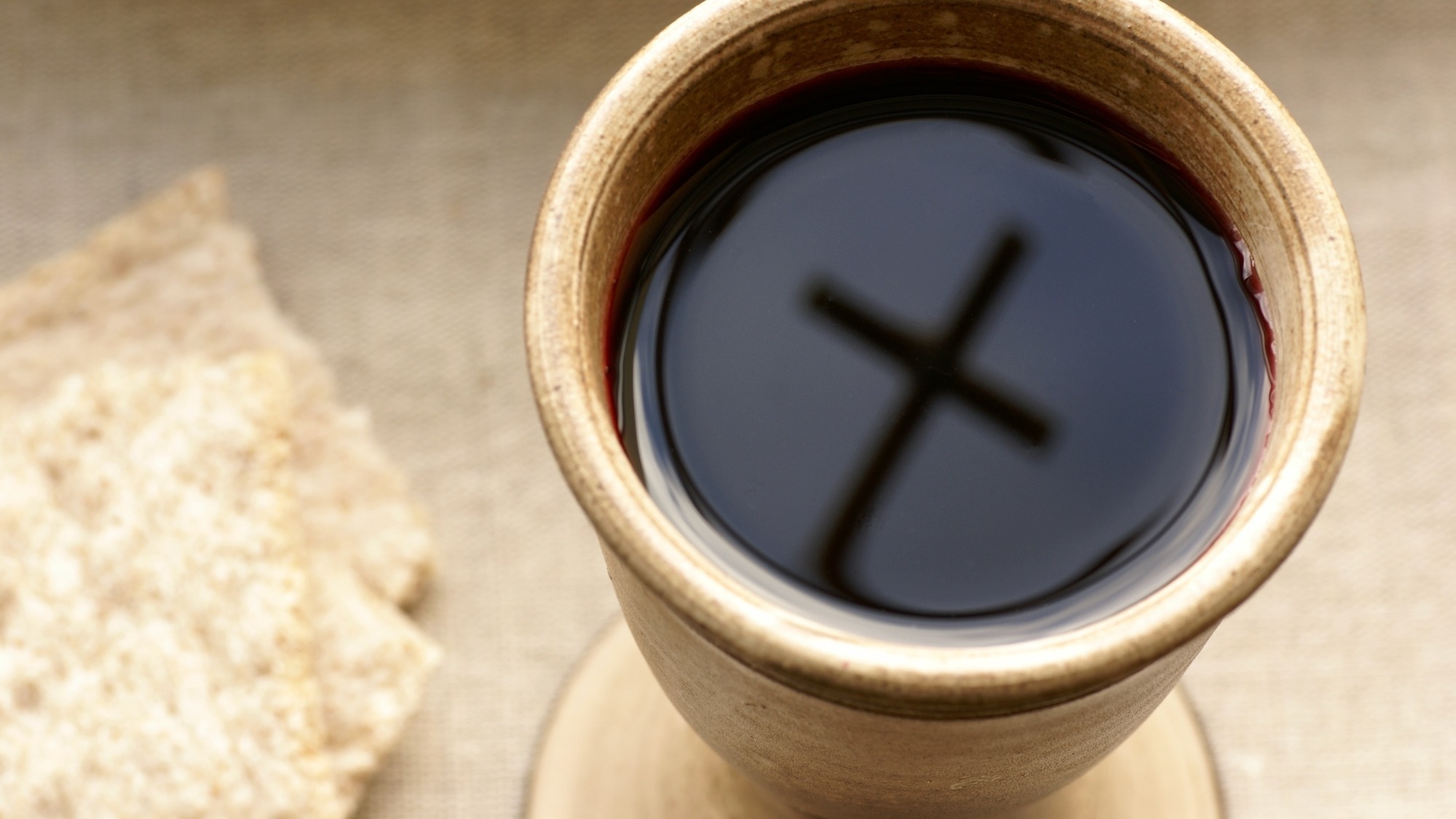Should Christians Use the Term “Eucharist” for the Lord’s Supper?

Photo Credit: Shutterstock.com
Disclosure: This post may contain affiliate links, meaning Beautiful Christian Life LLC may get a commission if you decide to make a purchase through its links, at no cost to you.
In some churches the Lord’s Supper is referred to as the “Eucharist” (pronounced yoo-ka-rist). In fact, it is used predominantly in Roman Catholic circles, so Protestants might be prone to have an aversion to such a name. But is it bad? Is it unbiblical? On the contrary, “eucharist” is a helpful term derived from Scripture that gives further insight into how we ought to think about this blessed sacrament.
Background of the Word Eucharist
Eucharist comes from the Greek word eucharisteō, which means “to be thankful on the basis of some received benefit” (Johannes P. Louw, Greek-English Lexicon of the New Testament, p. 299). Jesus uses this word during his ministry at a very interesting point: during the miracle of feeding the four thousand in Mark 8. In verse 6 we read, “And he took the seven loaves, and having given thanks [eucharistēsas], he broke them and gave them to his disciples to set before the people.” Here Jesus establishes a practice that many of us (hopefully!) still practice today: giving thanks to God for his provision before we eat a meal.
God Feasts with His People
And yet this particular meal was different from our regular meals at home. At this meal, God came to eat with his people in the flesh. As Jesus fed the four thousand, he foreshadowed that coming day when we would all feast at the marriage supper of the Lamb (Rev. 19:9). To eat at the end with God is the sign of ultimate blessing. Isaiah prophesied that at the end of all things, God would feast with his people and this would be the sign of consummate salvation. At this Supper would be the eternal bliss begun and the effects of sin destroyed:
On this mountain the LORD of hosts will make for all peoples a feast of rich food, a feast of well-aged wine, of rich food full of marrow, of aged wine well refined. And he will swallow up on this mountain the covering that is cast over all peoples, the veil that is spread over all nations. He will swallow up death forever; and the Lord GOD will wipe away tears from all faces, and the reproach of his people he will take away from all the earth, for the LORD has spoken. It will be said on that day, “Behold, this is our God; we have waited for him, that he might save us. This is the LORD; we have waited for him; let us be glad and rejoice in his salvation.” (Isa. 25:6–9)
So Much for Which to Be Thankful
Perhaps now we can better appreciate why the term “eucharist” is used. Jesus gave thanks for the food the Father provided to him and to the crowd through him. Do we not have all the more reason to give thanks at the Lord’s Supper? This is truly a Thanksgiving feast unlike any you have ever experienced with family and friends in November.
We give thanks, first of all, that God would allow us filthy sinners to feast with him. But beyond that, we give thanks knowing that when God feeds us we will never hunger again! Mark 8:8 tells us this, “And they ate and were satisfied.” One thinks of David’s words in Psalm 34: “Oh, taste and see that the LORD is good! Blessed is the man who takes refuge in him! Oh, fear the LORD, you his saints, for those who fear him have no lack! The young lions suffer want and hunger; but those who seek the LORD lack no good thing” (vv. 8–10). What reason to rejoice, celebrate, and—most of all—give thanks!
This article was originally published at Beautiful Christian Life on June 13, 2018.
Related Articles:
- 3 Reasons Why Christians Should Recite the Lord’s Prayer at Church
- Is the Lord’s Supper a Feast or a Funeral?
- Have You Considered the Gentleness of Jesus?
Recommended:
The Christian’s True Identity: What It Means to Be in Christ by Jonathan Landry Cruse

